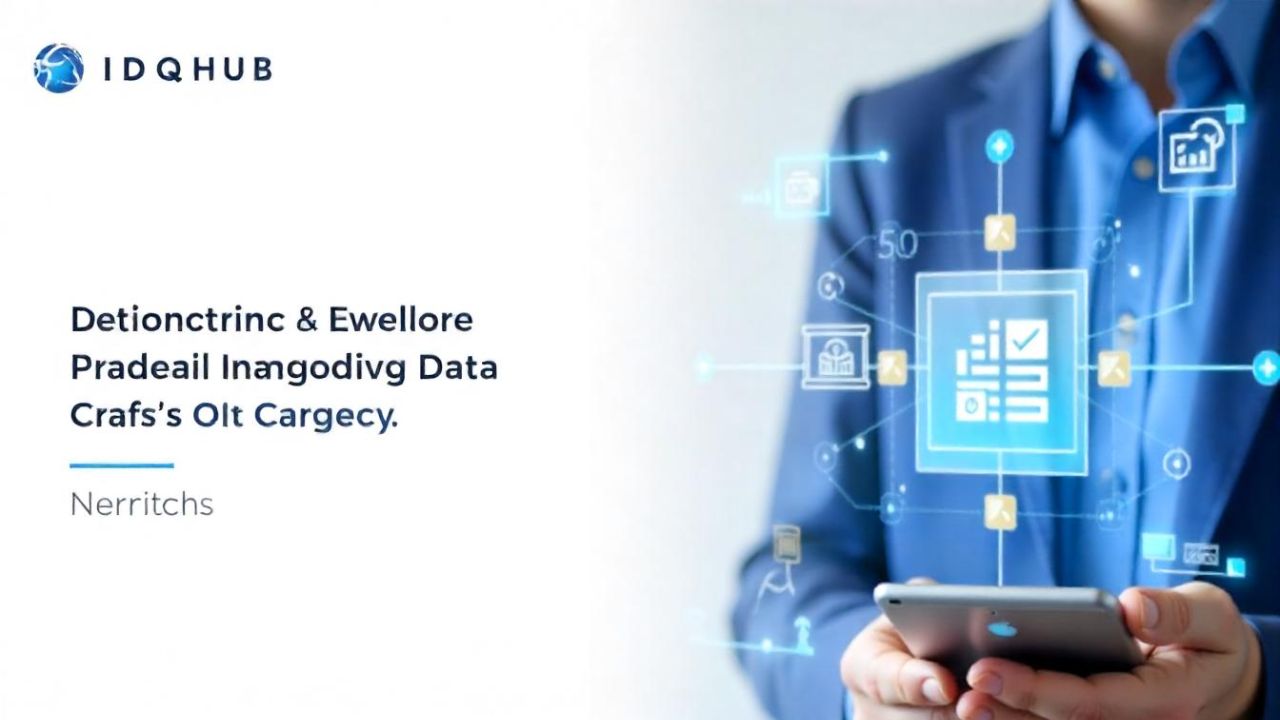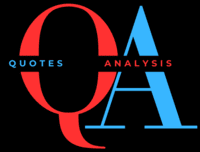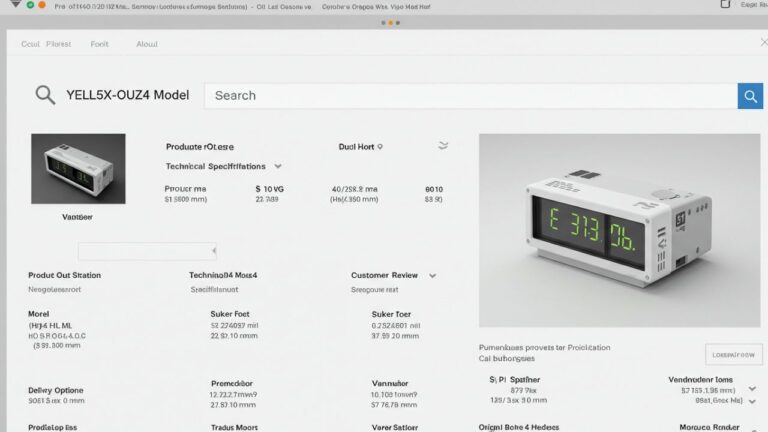
IDQ Hub
Businesses generate mountains of data daily, but turning that data into accurate insights requires more than collection. IDQ Hub empowers organizations to manage data quality and streamline integration processes with unmatched efficiency. As enterprises scale operations, they demand tools that ensure data consistency, reliability, and usability across departments.
IDQ Hub meets this demand by offering a robust platform tailored for complex environments. It supports collaboration, improves data stewardship, and drives digital transformation. Let’s explore how IDQ Hub accomplishes this and why it stands out in a competitive market.
What Is IDQ Hub?
IDQ Hub stands for “Information Data Quality Hub.” It serves as a centralized solution for improving, integrating, and governing enterprise data. Users rely on its suite of tools to cleanse, match, transform, and validate data from multiple sources.
This hub enhances decision-making by ensuring the accuracy and consistency of every data point across systems. Companies that adopt IDQ Hub often experience fewer reporting errors and improved operational efficiency.
Why Data Quality Matters in 2025
As businesses move toward automation and AI, data quality becomes non-negotiable. Inaccurate information leads to flawed algorithms, poor decisions, and customer dissatisfaction. Organizations must ensure that data remains clean and consistent.
IDQ Hub steps in by offering automated validation, enrichment, and monitoring. These features help companies protect the integrity of customer data, financial records, and operational inputs.
Getting Started with IDQ Hub
Implementation begins with connecting your data sources to IDQ Hub. The onboarding process feels intuitive, with built-in tutorials and templates. Users configure rules and policies based on their organizational needs.
Integration happens through simple APIs or bulk data connectors. The system allows you to preview changes before committing them, offering safety and control.
Core Features of IDQ Hub
IDQ Hub includes a wide range of tools designed for enterprise-level data governance. Let’s examine its core features that empower data professionals every day.
1. Data Profiling
Profiling tools help identify anomalies, duplicates, and patterns in your datasets. This step improves transparency and guides further action.
2. Data Cleansing
IDQ Hub automatically corrects misspellings, missing values, and incorrect formats. Users can customize rules for greater precision.
3. Data Matching
The platform offers intelligent matching algorithms to detect duplicates and connect related records. This function enhances customer 360 views.
4. Data Enrichment
You can enrich internal datasets using external sources. IDQ Hub supports location data, demographics, and business intelligence providers.
5. Workflow Automation
Customizable workflows automate repetitive tasks like cleansing, deduplication, and transformation. This feature saves time and reduces manual errors.
6. Rule Management
Administrators define validation rules to govern incoming data. These rules enforce policies and align data with regulatory requirements.
Architecture and Scalability
IDQ Hub uses a modular architecture that supports horizontal scaling. Businesses can start small and expand without replacing core components.
The platform supports cloud, on-premise, and hybrid deployments. These flexible options help IT teams manage infrastructure with fewer limitations.
Security and Compliance
Security plays a vital role in data governance. IDQ Hub uses encryption at rest and in transit. It also supports role-based access control.
Compliance features align with GDPR, HIPAA, and industry-specific regulations. The audit trail function tracks every change and user action for accountability.
Collaboration and User Roles
IDQ Hub promotes collaboration among business analysts, data scientists, and IT professionals. Role-based interfaces show relevant tools for each user.
Business users get dashboards and simple forms. Analysts gain access to profiling tools and enrichment panels. Admins configure workflows and security policies.
Integration Capabilities
The hub integrates with databases, CRMs, ERPs, and cloud storage platforms. Supported connectors include MySQL, Oracle, Salesforce, SAP, AWS, and Azure.
Developers can use REST APIs to build custom apps around IDQ Hub. Webhooks allow real-time updates for synchronized systems.
User Interface and Experience
The interface blends simplicity with functionality. You’ll find visual workflows, color-coded alerts, and drag-and-drop actions.
Non-technical users appreciate the layout’s clarity. Experienced users unlock advanced controls with just a few clicks. Switching between views feels seamless.
Performance and Real-Time Processing
IDQ Hub supports batch processing and real-time data streams. The system processes large datasets with minimal lag. Memory optimization ensures quick response times.
Users receive real-time alerts when errors or anomalies occur. This early detection enables immediate corrective actions.
Customization and Extensibility
Every organization has unique rules and formats. IDQ Hub allows custom scripting using Python or JavaScript. Developers build reusable components inside the platform.
Reusable templates simplify future data projects. Users can clone configurations and adjust them for new departments or teams.
Training and Support
The vendor provides video tutorials, written documentation, and live training. You’ll find courses suited for beginners and experts alike.
Technical support runs 24/7 with ticketing, email, and live chat. Enterprise clients receive a dedicated success manager for ongoing assistance.
Pricing and Licensing
IDQ Hub offers tiered pricing based on user roles and data volumes. Entry-level plans support small businesses. Premium tiers include enterprise-level security and features.
You can choose between subscription models or perpetual licenses. Many clients start with a trial and scale gradually.
Case Studies and Real-World Applications
Numerous organizations report improvements after adopting IDQ Hub. One healthcare company reduced duplicate patient records by 40% in six months.
A global retailer used the hub to unify customer data across 15 countries. This integration improved targeting and customer satisfaction significantly.
Challenges and Areas of Improvement
While IDQ Hub offers great tools, users report a learning curve during initial setup. Some say advanced features feel overwhelming.
The vendor continuously updates the UI and training materials. Still, organizations must allocate time for adoption and internal alignment.
Comparing IDQ Hub with Alternatives
| Feature | IDQ Hub | Talend | Informatica MDM | Microsoft Purview |
|---|---|---|---|---|
| Profiling Tools | Advanced | Basic | Moderate | Moderate |
| Workflow Automation | Customizable | Limited | Advanced | Basic |
| Integration Range | Wide | Wide | Limited | Microsoft-centric |
| UI Experience | Intuitive | Technical | Complex | Simple |
| Pricing Flexibility | High | Medium | Low | Medium |
Tips for Getting the Most Out of IDQ Hub
-
Start small with a pilot project to gain early wins and team buy-in.
-
Set clear rules and use built-in templates to speed up implementation.
-
Engage stakeholders from different departments for broader support.
-
Monitor workflows regularly and adjust configurations for better outcomes.
-
Train users consistently and revisit lessons during upgrades or process changes.
Future Roadmap and Innovation
The IDQ Hub development team plans to release AI-powered matching tools next year. These features promise better duplicate detection and data enrichment.
Other updates include enhanced mobile support and deeper cloud-native integrations. Expect a more dynamic dashboard with predictive analytics and visual storytelling.
FAQs
1. What does IDQ Hub do?
It manages data quality through cleansing, validation, enrichment, and integration across systems.
2. Can IDQHub handle real-time data?
Yes, it supports batch and real-time processing for continuous data validation and transformation.
3. Is IDQHub easy for non-technical users?
Yes, the interface includes visual workflows and guided setups designed for business users.
4. Does IDQHub comply with data regulations?
Yes, it supports GDPR, HIPAA, and other global compliance standards through robust controls and auditing.
5. How does IDQHub differ from competitors?
It offers flexible workflows, user-friendly design, and strong integration capabilities for enterprise environments.
6. Can IDQHub be customized?
Yes, you can add scripts, build reusable templates, and connect custom APIs to suit your organization.
Conclusion
IDQHub offers a modern, comprehensive solution for data quality and integration. Its rich feature set, flexibility, and strong security make it a top contender for any enterprise needing structured, reliable data. Organizations looking to future-proof their operations will find immense value in adopting IDQ Hub today.
If you prioritize clean data, automation, and cross-team collaboration, you should strongly consider this platform. It doesn’t just fix data—it transforms how businesses work with information.




